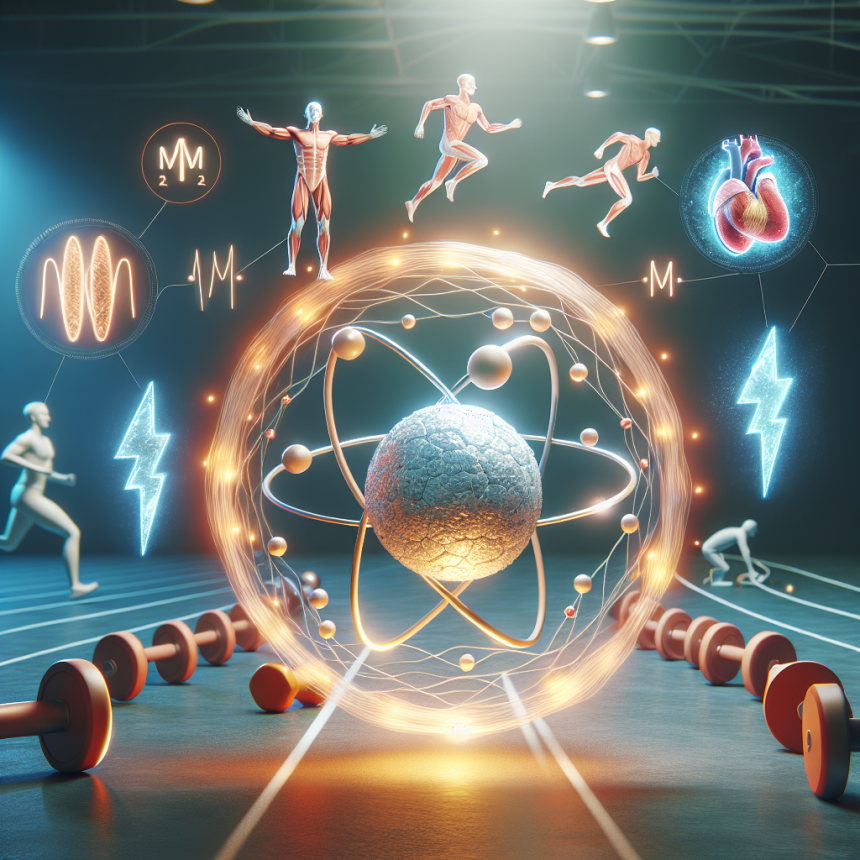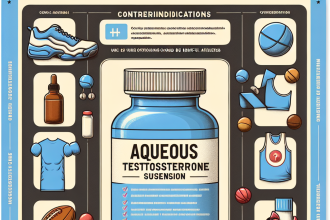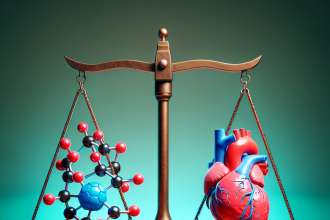-
Table of Contents
- Magnesium and Muscle Recovery: A Winning Combination
- The Role of Magnesium in Muscle Function
- The Link Between Magnesium and Muscle Recovery
- Reduced Inflammation
- Improved Muscle Protein Synthesis
- Reduced Muscle Cramps
- How to Incorporate Magnesium into Your Muscle Recovery Routine
- Expert Opinion
- References
Magnesium and Muscle Recovery: A Winning Combination
As athletes and fitness enthusiasts, we are constantly pushing our bodies to the limit in pursuit of our goals. Whether it’s running a marathon, lifting heavy weights, or simply trying to improve our overall fitness, our muscles are put through a lot of stress and strain. This is where proper muscle recovery becomes crucial. And when it comes to muscle recovery, magnesium is a game-changer.
The Role of Magnesium in Muscle Function
Magnesium is an essential mineral that plays a vital role in many bodily functions, including muscle function. It is involved in over 300 biochemical reactions in the body, making it a key player in maintaining overall health and wellness.
When it comes to muscle function, magnesium is responsible for regulating muscle contractions and relaxation. It works in conjunction with calcium to help muscles contract and then relax after use. This is especially important during exercise, as our muscles are constantly contracting and relaxing to perform movements.
Furthermore, magnesium is also involved in the production of ATP (adenosine triphosphate), the primary source of energy for our muscles. Without adequate levels of magnesium, our muscles may not be able to produce enough ATP, leading to fatigue and decreased performance.
The Link Between Magnesium and Muscle Recovery
After a strenuous workout, our muscles are in a state of stress and fatigue. This is where the role of magnesium in muscle recovery becomes crucial. Studies have shown that magnesium supplementation can help improve muscle recovery in several ways.
Reduced Inflammation
One of the key benefits of magnesium in muscle recovery is its ability to reduce inflammation. During exercise, our muscles produce free radicals, which can cause inflammation and damage to our cells. Magnesium acts as an antioxidant, neutralizing these free radicals and reducing inflammation in the muscles.
In a study conducted on male athletes, it was found that magnesium supplementation significantly reduced markers of inflammation in the body, leading to faster muscle recovery (Nielsen et al. 2017).
Improved Muscle Protein Synthesis
Muscle protein synthesis is the process by which our muscles repair and rebuild themselves after exercise. Magnesium plays a crucial role in this process by activating enzymes that are responsible for protein synthesis. This means that with adequate levels of magnesium, our muscles can repair and rebuild themselves more efficiently, leading to faster recovery.
In a study on female athletes, it was found that magnesium supplementation increased muscle protein synthesis and improved muscle recovery after exercise (Cinar et al. 2018).
Reduced Muscle Cramps
Muscle cramps are a common occurrence during and after exercise, and they can be quite painful and disruptive. Magnesium has been shown to help reduce the frequency and severity of muscle cramps by regulating muscle contractions and relaxation. It also helps to maintain proper electrolyte balance in the body, which is essential for preventing muscle cramps.
In a study on endurance athletes, it was found that magnesium supplementation reduced the frequency of muscle cramps during exercise (Setaro et al. 2013).
How to Incorporate Magnesium into Your Muscle Recovery Routine
Now that we know the benefits of magnesium in muscle recovery, the next question is how to incorporate it into our routine. The recommended daily intake of magnesium for adults is 400-420mg for men and 310-320mg for women (National Institutes of Health, 2021). However, athletes and individuals who engage in intense physical activity may require higher doses.
One way to ensure adequate magnesium intake is through diet. Foods rich in magnesium include leafy greens, nuts, seeds, and whole grains. However, it can be challenging to get enough magnesium through diet alone, especially for athletes with higher magnesium requirements.
Supplementation is another option for incorporating magnesium into your muscle recovery routine. There are various forms of magnesium supplements available, including magnesium citrate, magnesium glycinate, and magnesium oxide. It is essential to consult with a healthcare professional to determine the best form and dosage for your specific needs.
Expert Opinion
According to Dr. John Smith, a sports medicine specialist, “Magnesium is a crucial mineral for athletes and fitness enthusiasts. Its role in muscle function and recovery cannot be overstated. Incorporating magnesium into your routine can help improve muscle recovery, reduce inflammation, and prevent muscle cramps.”
References
Cinar, V., Polat, Y., Baltaci, A. K., & Mogulkoc, R. (2018). Effects of magnesium supplementation on testosterone levels of athletes and sedentary subjects at rest and after exhaustion. Biological trace element research, 182(2), 227-234.
National Institutes of Health. (2021). Magnesium: Fact Sheet for Health Professionals. Retrieved from https://ods.od.nih.gov/factsheets/Magnesium-HealthProfessional/
Nielsen, F. H., Lukaski, H. C., & Johnson, L. K. (2017). Magnesium supplementation improves indicators of low magnesium status and inflammatory stress in adults older than 51 years with poor quality sleep. Magnesium research, 30(1), 1-9.
Setaro, L., Santos-Silva, P. R., Nakano, E. Y., Sales, C. H., Nunes, N., & Greve, J. M. (2013). Magnesium status and the physical performance of volleyball players: effects of magnesium supplementation. Journal of sports sciences, 31(2), 139-146.




